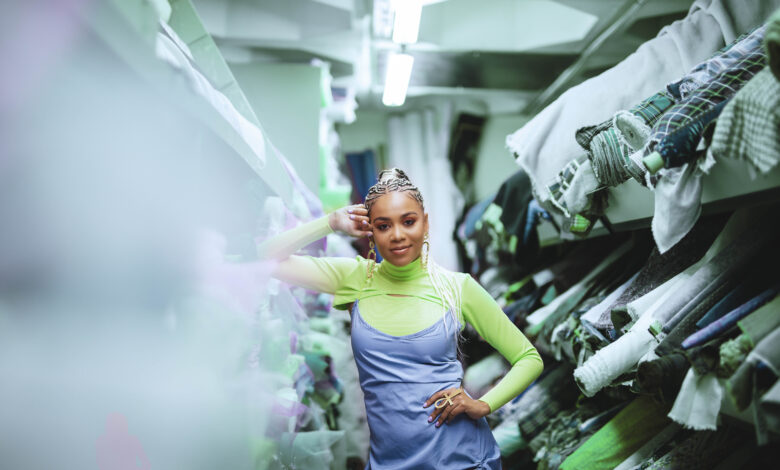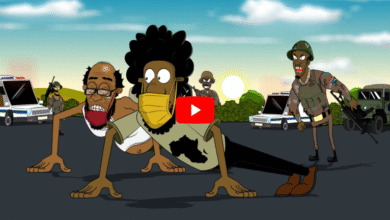Sho Madjozi Opens Up About Her biggest Financial Lessons During The Pandemic

Multi-award-winning rapper, singer, songwriter and businesswoman Sho Madjozi is a force to be reckoned with. Madjozi is known for using her Tsonga culture as inspiration for her music, image and clothing range. From growing up in Limpopo and attending high school in Tanzania to finding global fame from Senegal to the United States, Madjozi has a unique sound that is influenced by various African cultures and her journey as an artist.
As part of the YouthX programme, which was launched in March 2021, Nedbank partnered with Sho Madjozi as the Arts & Entertainment Changemaker. The programme is aimed at putting the power back into the hands of the youth by educating and engaging them on various topics. Powered by Nedbank’s Unlocked.Me platform, YouthX was also created to give the youth the necessary tools to help them unlock their full potential.
As with most artists and creatives, the Covid-19 pandemic affected Madjozi’s ability to work. She now shares her journey and thoughts on how young people in the arts and entertainment industry can find ways to thrive during and after the pandemic.
What practical steps can artists take now to make sure they are set for success after the pandemic?
I think make sure your paperwork is on point. Register your songs at the Southern African Music Rights Organisation (SAMRO) and make sure you are earning from your digital streams.
What lessons did you pick up during the hardcore lockdowns (level 5) that you think are now helping you become a better artist?
That was a pretty hard time to be creative. I think I learnt to be kind and gentle with myself. I was touring and performing quite extensively before the lockdown and had to make the mindset shift from performing to planning and thinking of new ways to work. For example, I’ve been working virtually with producers and songwriters, which has been a learning curve. But now that restrictions have lifted to a degree, I appreciate the time on the stage even more.
With everything going virtual, do you think the industry should invest in technology that can help artists perform and earn an income?
Yes, and especially technology that makes us able to feel like we are together even if we are all watching in our separate homes. Because we are social creatures at the end of the day, the ‘audience’ should still be able to interact with what we are watching or listening to.
You often travel and perform in other African countries. How have artists in other African countries dealt with Covid-19 or lockdown regulations?
Yes, I’ve been blessed to travel, perform and even live in many African countries. Each country has reacted quite differently to the pandemic, but in general artists tended to focus more on songs and lyrics that would do well online and think less about songs that would do well in a massive group setting. So now when you think about marketing a song, you almost can’t do so without thinking about what TikTok challenge you can attach to it. Because everyone can make a TikTok at home, you don’t have to be at a concert to take part in that.
How can artists make sure that they stay relevant and don’t lose their audiences?
Well, there’s always interactions but some artists don’t like to showcase their whole lives on social media, and in that case it’s really simple: keep giving people what they came to you for in the first place, which was art.
Who or what has been your greatest motivation during this time and how important is it for artists to stay positive?
I’ve been my greatest motivation. It has not been easy at all, and making my new album has been hard work. But shout out to me for putting in the hours. It’s important to keep going because the outcome is incredible. Being able to complete something you’re proud of is beyond worth it.
What is the biggest financial lesson you have learned during the pandemic that you would like to share with current or up-and-coming artists?
I learned that taking a bit of time to plan ahead always saves money in the future. Doing things last-minute always costs more, whether it’s buying the flight at the last minute or having to order in because you didn’t plan properly. So, time really is money: If you save time now by skipping the planning stage, you will pay for it later.
What do you think is the biggest misconception about the entertainment industry, especially now during the pandemic? What do the youth need to know or understand about the current climate?
The biggest misconception about the entertainment industry has always been the idea that it isn’t hard work. People think songs just happen and shows just happen and content creators just make videos. Maybe at first, but to achieve longevity and real success, you have to be consistent and that takes hard work.
How has the YouthX programme impacted you personally and what do you hope the youth take away from your journey?
I hope the youth will also get to learn from my fellow Changemakers. I’ve been able to see the talks from Theo, Rich and Candice, and I learned so much. I hope others can too.
If you want to learn more from Sho Madjozi and other YouthX Changemakers (Amanda Dlamini, Theo Baloyi, Rich Mnisi and Rivo Mhlari), visit the Unlocked. Me – YouTube channel.




